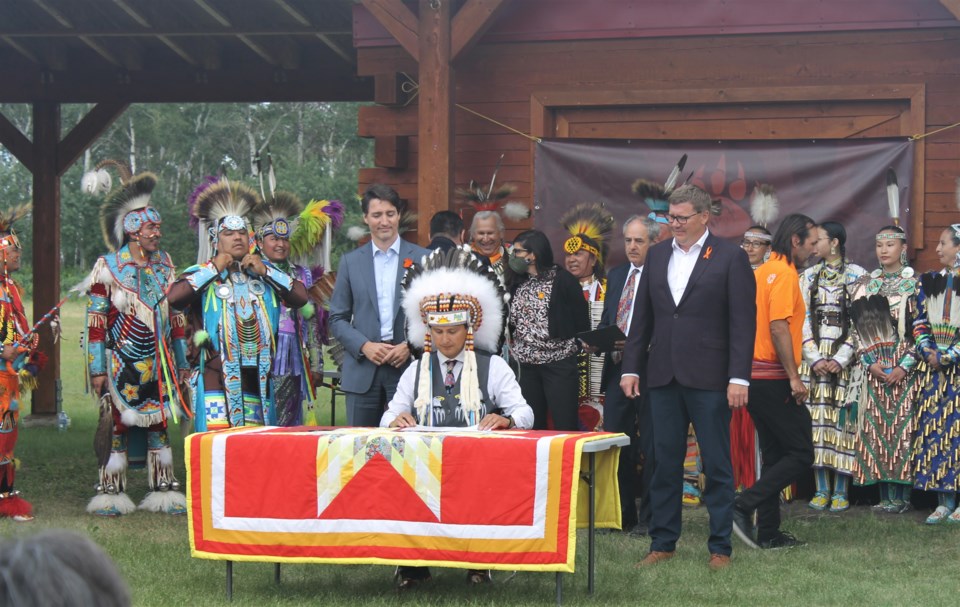REGINA — Cowessess First Nation is on the road to leading reform in child welfare programming, as the community reports a multitude of successes after retaking responsibility of its child services.
Cowessess First Nation, located approximately 200 kilometres east of Regina, shared details of its child services coordination agreement following the announcement earlier this week that the federal government reached a $40 billion settlement to compensate First Nation children and families.
Half of this settlement agreement, noted to be the largest in Canadian history, will be used to reform the federal First Nations Child and Family Services program over the next five years, to solve underfunding issues.
The agreement follows several weeks of negotiations with First Nation representatives and legal teams, including the Assembly of First Nations.
In a similar motion to address social services concerns, Prime Minister Justin Trudeau and Premier Scott Moe travelled to Cowessess First Nation in July of 2021 to officially return jurisdiction of child welfare to the community, the first agreement of its kind in Canada.
Since then, Cowessess Chief Cadmus Delorme said reform of how child welfare in the community is handled has changed successfully.
“On behalf of Cowessess First Nation children and families who experienced challenges while dealing with child welfare, kinanãskomitin, thank you,” said Delorme, in a statement. “To [those] who have been leading this fight to assure equality comes to Cowessess First Nation children past, present and future.”
As part of the Miyo Pimatisowin Act’s reclamation of jurisdiction, Cowessess began the creation of the Chief Red Bear Children’s Lodge in April of 2021, said Delorme.
The lodge is now providing traditional and cultural healing supports to Cowessess community members, as protection and prevention measures related to family services.
Delorme said that since the agreement was signed and the lodge began operating, no children from Cowessess are currently in the care of the Ministry of Social Service on reserve lands.
Nineteen children previously under the care of the ministry, previously residing across Saskatchewan and even in other provinces, have been returned to their families and provided support for “good family plans.”
Nine more children in ministry care have also been introduced to family at Cowessess for the first time.
“Recently, three children in care had their genealogy chart done by one of our staff. For the first time, they could hear about their relatives and met an auntie at a gathering,” said Delorme.
Chief Red Bear Lodge is also successfully providing preventative programming, in collaboration with the Ministry of Social Services. Cowessess said this includes at least a dozen families utilizing the three on-staff therapists at the lodge.
The lodge also remains in direct contact with members of the Cowessess community, which Delorme said is helping to alleviate anxieties and encouraging families to ask for help when needed.
“We are offering respite to two kokums who need a rest due to their age and health,” said Cowessess’s statement. “They would not have shared their needs in the past, for fear of losing their grandchildren.”
Delorme said that Cowessess is looking ahead to continue providing an example for child welfare reformation for other Indigenous jurisdictions across the country.




